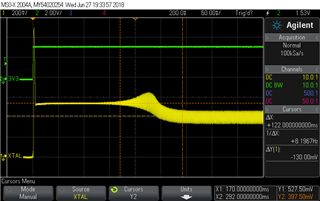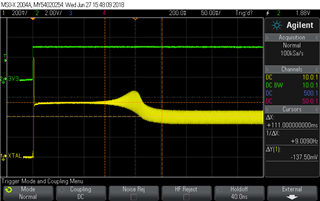On one of our products, we are experiencing approximately 4% failures during production. I traced the problem to be caused by function sd_softdevice_enable not returning. This problem does not occur if I have a Segger JTAG probe connected or if the internal LF 32 KHz RC oscillator is used instead of the external crystal. But with the external 32 KHz (20 ppm) crystal oscillator, about 4% of boards do not return from the sd_softdevice_enable function. On the problem boards, our hardware engineers believe that this LF external oscillator is starting up normally. They do not observe any startup differences between a good board or a bad board. I would like to know the reasons why the function sd_softdevice_enable might not return.




